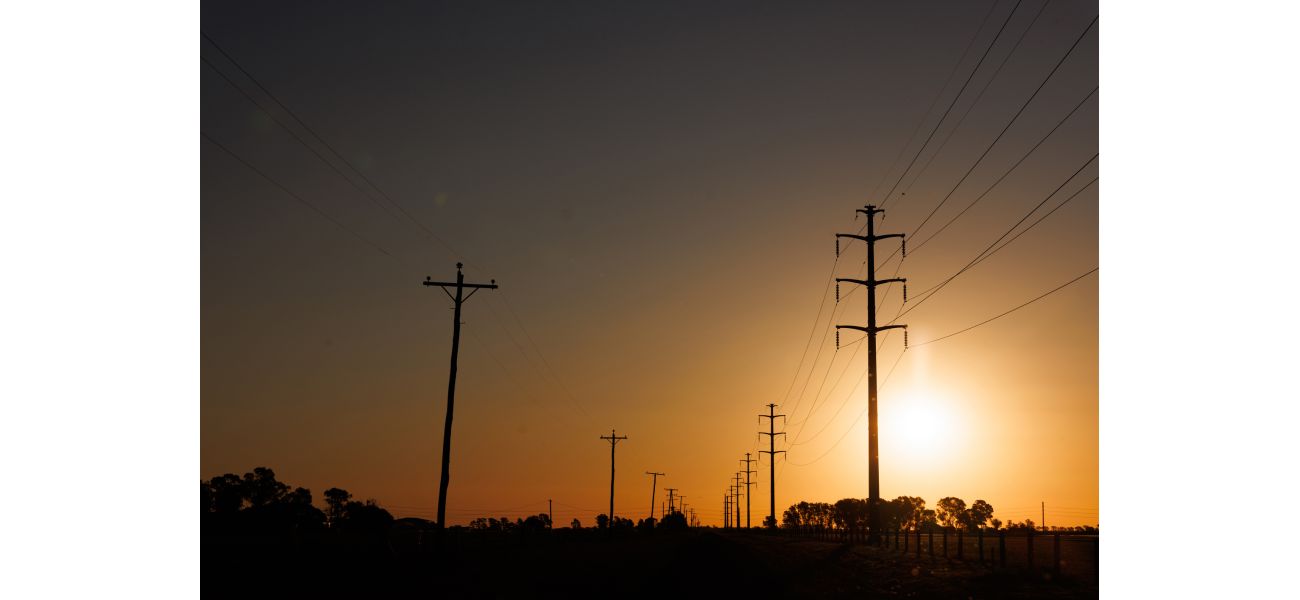Australians are trying to prevent power outages at home by using a new technology.
People are buying more personal generators due to the threat of power outages.
November 26th 2024.

As the summer heatwave begins to hit the New South Wales coastal region, residents are being warned about potential blackouts. With energy reserves already tight and key generators undergoing maintenance, both Queensland and NSW are at risk of grid failures. This means that people may face the loss of power for essential things like air-conditioning and electric lights, and they are responding in different ways.
Take Peter Nash, a 63-year-old man who splits his time between the Central Coast and Sydney's Northern Beaches. He knows firsthand the importance of being prepared for power outages, having previously used generators on his farm. In fact, he was quick to purchase two personal generators at the start of the COVID-19 pandemic, worried about the stability of the energy grid. Now, as the heatwave intensifies, he has filled up his generator and is ready for it to take over the power supply to his property.
Nash is not alone in his preparations. Energy retailer VoltX has seen a 60% increase in demand for personal generators in the past three months. According to head of marketing Ankur Ashta, this surge in demand is due to a growing awareness of the aging Australian grid. Around 70% of their customers are first-time buyers, looking to protect their homes from potential blackouts. The remaining 30% are "topping up", meaning they already own a generator for camping and are now looking to upgrade for their residence.
When it comes to buying a generator, there are several factors to consider. Ashta advises people to think about their power requirements, what appliances they want to run, and the size of the tank, especially for those living in regional areas. This is because power outages in these areas can last longer, so having a larger tank size is crucial.
For Nash, the upfront cost of $1700 to $1800 for his personal generator was well worth it. He has even connected it to his power box with safety switches in place to protect anyone working on nearby lines. He has tested it before, and everything ran smoothly. However, he remains skeptical about the government's ability to keep the lights on during the heatwave, stating that he expects blackouts and brownouts to become a regular occurrence.
It seems that many residents are taking matters into their own hands to ensure they are not left without power during the summer heatwave. With the increasing awareness of the aging Australian grid, more and more people are investing in personal generators to blackout-proof their homes. So whether it's for the safety of his family or the reliability of his own power supply, Nash believes that having a personal generator is essential in these uncertain times.
Take Peter Nash, a 63-year-old man who splits his time between the Central Coast and Sydney's Northern Beaches. He knows firsthand the importance of being prepared for power outages, having previously used generators on his farm. In fact, he was quick to purchase two personal generators at the start of the COVID-19 pandemic, worried about the stability of the energy grid. Now, as the heatwave intensifies, he has filled up his generator and is ready for it to take over the power supply to his property.
Nash is not alone in his preparations. Energy retailer VoltX has seen a 60% increase in demand for personal generators in the past three months. According to head of marketing Ankur Ashta, this surge in demand is due to a growing awareness of the aging Australian grid. Around 70% of their customers are first-time buyers, looking to protect their homes from potential blackouts. The remaining 30% are "topping up", meaning they already own a generator for camping and are now looking to upgrade for their residence.
When it comes to buying a generator, there are several factors to consider. Ashta advises people to think about their power requirements, what appliances they want to run, and the size of the tank, especially for those living in regional areas. This is because power outages in these areas can last longer, so having a larger tank size is crucial.
For Nash, the upfront cost of $1700 to $1800 for his personal generator was well worth it. He has even connected it to his power box with safety switches in place to protect anyone working on nearby lines. He has tested it before, and everything ran smoothly. However, he remains skeptical about the government's ability to keep the lights on during the heatwave, stating that he expects blackouts and brownouts to become a regular occurrence.
It seems that many residents are taking matters into their own hands to ensure they are not left without power during the summer heatwave. With the increasing awareness of the aging Australian grid, more and more people are investing in personal generators to blackout-proof their homes. So whether it's for the safety of his family or the reliability of his own power supply, Nash believes that having a personal generator is essential in these uncertain times.
[This article has been trending online recently and has been generated with AI. Your feed is customized.]
[Generative AI is experimental.]
0
0
Submit Comment





